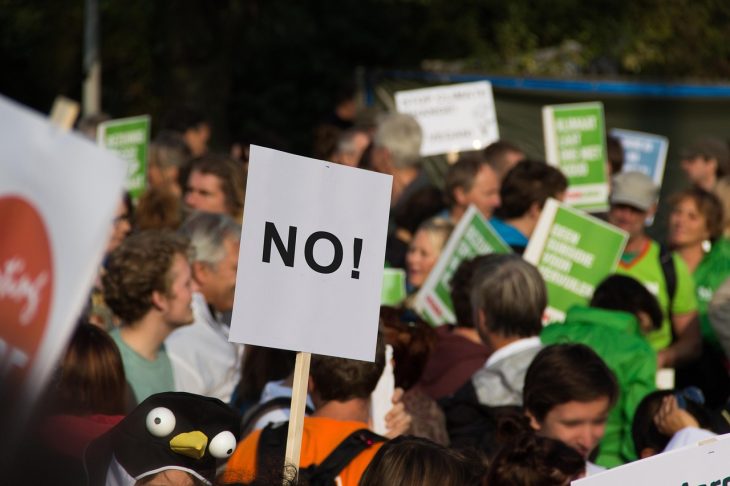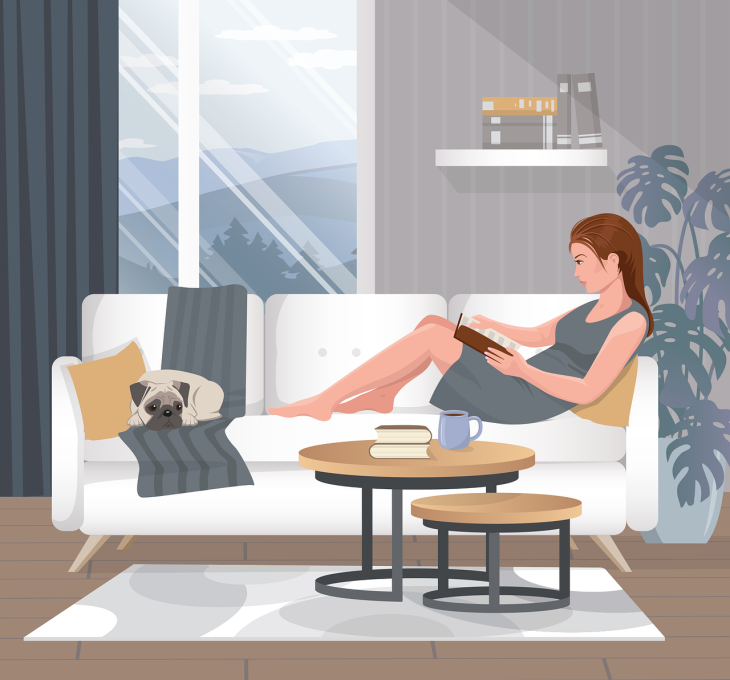Once Again, Writers…

Good afterevenmorn, Readers!
Not too long ago, I broke my long absence from video-format social media, which is just a very wordy way of saying I’m back on TikTok. I had abandoned it in the middle of the year when life slammed into me pretty hard and I needed some time and space for grieving (I lost my beautiful cat rather suddenly and unexpectedly). It wasn’t a deliberate decision, I just couldn’t handle much at all, so a lot of things just got abandoned while I worked through my stuff.
Two or so weeks ago, I returned, and ho boy, the tea is tea-ing. There’s so much drama on BookTok, specifically. There are currently three major dramas going on at present that I’m aware of, one of which really got under my skin, but I’m not touching it at present. I’m too annoyed, and I’m not even the audience that was directly insulted. Instead, I want to address writers very specifically on reviews, reviewers and review spaces.

Now, I’m not going to use names here. The author in question has been tagged in every kind of reaction video possible, and I’m sure they’re overwhelmed for what I feel was a well-meant error. But an error nonetheless. Last I heard, they’ve been chased off TikTok with the volume and intensity of the reactions.
Essentially, this debut author responded to a negative review. Not in any way that was rude, or whiny, or harsh. It was very sweet and well-meant, I think. Essentially, they popped up on the review and told the reviewer that they were sorry the experience of reading the book wasn’t great and advised the reviewer to return the book since that was the case.
Very mild stuff.
What was said was not the problem. It’s the fact that it was said at all.
As a writer, I know the temptation to know what people are thinking about your work is overwhelming. For writers who grew up in the age of social media, the desire to connect with readers must be incredibly strong, not least of all because a close community of readers can be the thing that propels a writer’s work into virality. Which would be amazing for book sales. Both these things together can create the perfect storm which may result in a colossal misstep as what happened in this case.
Let me address the first thing first.

Following reviews of a book you’ve written and released into the world is something that many writers do, I have no doubt. I certainly have, but that’s because I also have to do my own marketing, and having positive reviews up and shared is part of the whole trying to get book sales thing. So I cannot fault this author for haunting these spaces.
If an author happens to be lucky enough to be published by a press that has a marketing department, then it’s probably best to not be there at all, however. Not every review is going to be good, and from experience, it’s the less than kind reviews that will stick in one’s mind and crush the soul. It won’t matter how many wonderful reviews are there. Those few (or perhaps many, who knows?) poor reviews will work their way into the mind and live there forever. If for no reason than your own mental health, I would strongly suggest not venturing into those spaces. Curiosity will, no doubt, drives many a writer there, but most wisely do nothing while there and never speak of it if they do visit.
But there is another, much more important reason that writers should not be in review spaces, or interact with any reviews. Even the positive ones.

That reason is simply this:
Those spaces are for readers.
Reviews are by readers for other readers. It is a community for readers to talk, debate, enthuse (or hate, if they must). They can do none of these if they believe that an author is hovering on the edges, reading over their shoulders. It’s hard to be honest about a work if you are concerned you’ll hurt someone’s feelings, or live in fear of their fans following these writers into these spaces and start roughing folks up for their opinions. It does tend to happen, whether the author intends for it or not. Fans are going to defend their favourites from any perceived slight. And no reviewer wants to bear the brunt of that.
For someone who has been surrounded by social media their whole lives, where creator and fan interactions are the norm, it can be a difficult concept to get used to – that there are just some spaces where you now, as soon as you become a published writer, simply can no longer go. It doesn’t matter that you want to interact with readers of your work. It doesn’t matter how sweet or polite you are about it. You are interacting in a space that isn’t for you. You have made yourself a wasp at a picnic.
The minute you make your presence known, it shuts down the conversation. I mean, it’s the equivalent of a group of people chatting about a person or event and the people involved in it, only to have that person (or people) show up. That conversation ends immediately. And we can’t be having that in a space reserved specifically for that kind of discussion.
Interacting with reviews, particularly the negative ones, can also bring a whole mass of trouble, courtesy of fans who may feel the need to defend a writer or their work. It can turn really nasty really quickly, with internet mobbing that get so vicious that is has chased folks off the internet before now. Now, I’m not accusing this particular writer of sending their hordes after a reviewer who was less than thrilled with a book. Or that even most authors would. But fans follow their favourites, and these things can (and are likely to) happen, whether sanctioned by the author in question or not.
The threat of that happening also puts a dampener on the conversation if reviewers know that the authors are sniffing around.

The author in question did, in fact, come from content creation previously, where parasocial relationships are the norm. It’s different for writers. We can’t do that unless it’s in our own spaces. So, on this blog post, and on any of the posts I put online in any of my spaces, interaction is expected and encouraged.
A reviewer’s space, however (Goodreads or StoryGraph, or even reviews posted on their own blogs or social media), are not places for a writer to be. That’s for the reviewers and readers. It’s specifically designed for places where these folks can read, review and discuss without having to worry about what their honestly will bring. This has to be a hard and fast rule. These spaces should be sacrosanct. Without them, we risk losing the healthy community of readers we writers crave.
So writers, if you must ruin your mood by hunting for reviews, go stealth. Tell no one; before, during, or after. Mostly. The only person you can ever tell will be your therapist (and you may need one if you do decide to venture into the land of your reviews). They, too, are sworn to secrecy.
M’kay? M’kay.
When S.M. Carrière isn’t brutally killing your favorite characters, she spends her time teaching martial arts, live streaming video games, and sometimes painting. In other words, she spends her time teaching others to kill, streaming her digital kills, and sometimes relaxing. Her most recent titles include Daughters of Britain, Skylark and Human. Her next novel The Lioness of Shara Mountain releases early 2026.
Wait. Hang on. Clarification needed. Perhaps I’m missing something because I’m harsh on most social media (opinion: “It’s a cesspit.”) and don’t spend much time in it. Perhaps I’m missing something because my published work isn’t often subject to review outside of a wiki-comments page. But your description of the review space sounds less like a review space and more like a gossip space. When people are talking about someone and conversation stops because that person joins the group, in my experience it happens only because (1) the former conversants were planning a surprise for the subject, or (2) the former conversants were espousing unjust remarks and indulging in other unworthy behaviors. When the conversants are doing neither, the response to the subject joining them is always, “Ah! We were just talking about you! Clear something up for us.”
A review is not unjust. It is an opinion or set of opinions that either is well-founded, or the reviewer acknowledges to be a personal reaction with an inexplicable foundation. It is designed to provide information to others considering the subject, and to provide feedback to the creator of the subject. By its very nature, a review invites the creator to respond with gratitude, query, or challenge. If the reviewer is able to form an opinion and place it in public, the reviewer is able to explain, expand upon, and even defend that opinion.
Is BookTok an actual review platform, or is it a gossip pot? If it’s a problem for an author to be there and part of the discussion, is that not an indication that the wrong rests with the way people are using the platform?
What am I missing?
It’s not a gossip site per se (though plenty of news-ish stuff is involved with it), but if someone doesn’t like a book, they will go into detail as to why; be it shoddy writing or tired tropes or what have you (or, as you say, an inexplicable negative reaction). If reviewers are aware that the very authors they’re talking about are in their space, then it likely dampens honesty; either for fear of hurting someone’s feelings (contrary to some opinion, reviewers are very rarely mean for no reason and are actually kindly folks in general), or for fear of a reaction from the author that will result in the kind of internet mobbing we too often see.
So, unless an author is invited into the conversation (if they are tagged in the original post, then it is inviting conversation with the author), we should just stay away. That conversation might be about us, but it is not for us. That’s for readers.
In order to keep the review space honest and healthy, that division needs to be well defined and well respected.
How does “fear of hurting the author’s feelings” hamper honesty? The mobbing thing I can understand hampering honesty, but mobbing happens whether or not the author is involved. The very well publicized and encouraged response to fearing hurting someone’s feelings is tripartite:
1. Exercise tact in how you write your review. Instead of saying it in a way that blames the author, say it in a way that it’s nobody’s fault. Don’t write, “[Author]’s story stinks because it uses tired tropes.” Do write, “Since I’ve read estranged-lovers-are-forced-onto-proximity-when-he-unknowingly-hires-her-company in so many other books, it’s not quite as charming in [author]’s treatment, especially when the love triangle includes the also common grumpy-boss-with-a-heart-of-gold.”
2. Make the review supportive and constructive when it has to have a negative part. Don’t write, “[Author] wrote a poisoned-pen exclusive.” Do write, “This book has a distinctly anti-[ideal]ist bent. It may or may not be intentional, but is most evident when [character] [action]s in [scene]. Hopefully, [author] will avoid this sort of thing in the future. Until then, if you’re an [ideal]ist considering reading this book, take it with a grain of salt.”
3. Remember that nobody improves without being told what went wrong, or considering what went wrong, themselves. Problems keep repeating, so if you see something, say something, gently. Don’t write, “I don’t know why [author] always writes a version of [scene]. If a joke isn’t funny the first time, it isn’t better a second.” Do write, “As always, [author] has included [scene] on page [number]. If you look forward reading to this each book, enjoy! For the rest of us, feel free to skip it: it doesn’t actually do anything plot-relevant here.”
The above reviewing advice is available in different variations in a LOT of places. What I never see in reviewing advice is “Assume the author will never see your review” or “Hide your review from the author” or “Don’t worry, the author isn’t allowed to say anything about your review.” That would be ridiculous. Putting out a review is automatically an invitation to dialogue; no persons ever have a right to never be asked to explain their remarks or never be told they’re wrong about something, especially by the person about whom the remarks are being made. Someone who has such an expectation is exercising tyranny.
No. I do not agree. If someone sets a review or a remark out in public, there is no expectation of privacy at all. Not from other people, and definitely not from the subject of the review or remark. Such a space that tries to enforce that doesn’t foster safety and open communication, it only drives a wedge between the reviewer and the reviewee, and encourages people to be less than caring in how they express themselves.
The author was not in the wrong, here. The people of Book Tok were in the wrong.
We shall have to agree to disagree on this score. I think it’s very important that readers can discuss their work unhampered, and that they have their own space to do so.
While I agree that a public discussion is, well, public, the space reviewers have to be free and open with their thoughts or opinions, and in their discussions about a work, is really important; particularly around fiction. The author getting involved, however kindly or well-meaning, absolutely hampers this, and is a genuine threat to the ecosystem that fosters a love of books and reading.
I know I have stopped offering reviews or public discussions of books (outside of panels) because I’ve had a couple of brushes with hurt authors lashing out, and I just don’t want that grief. Reviewers should be protected from that, so authors are better to stay away entirely.
Once the book is written, it’s out of your hands. You can’t control how it’s received. Unless you’re directly requested to be there (book club talk, panel, or tagged by the OP in the original post), authors shouldn’t be involved.
No one is saying don’t go looking for reviews. They can be useful and instructive. By all means, check them out if your mental health allows, but staying out of the discussion is best for everyone (again, unless invited in).
One time I posted a review on Goodreads and the author popped in with a comment and it was a very nice and civil comment, but it still felt weird and startling and maybe even intrusive.
If you want to _link_ to a review I posted, that’s fine, but yeah, please no direct interaction within the review itself.
I totally understand the impulse to jump in; be it grateful or defensive or just wanting to build a community, but I absolutely agree that intruding on review spaces is not the way to do it for writers. There are other spaces for that.
I think you nailed it. I don’t think anyone should read or watch reviews of their work unless they possess a strong sense of detachment coupled with a good measure of bemusement. Doing so otherwise, and responding to the reviewer is tactless. It’s best to just not go there at all. Leave those folks alone.
So many people in the social media era assume a warped notion of democracy that anything anyone posts is public space and (worse) far too many folks take offense at any view and opinion of even the most trivial thing as a personal attack. It isn’t, and certain protocols have to be observed. If a fellow reader/poster has a contrasting opinion then simply state that opinion on its own without ever referencing anyone else’s opinion.
Authors and creators of any stripe should always respect any social space where people review work. At the very least it’s eavesdropping, at worst it’s intrusive.
Please accept my deepest condolences at the loss of your beloved pet. I am all too familiar with the enormous grief that accompanies this kind of loss. The last of my feral rescues passed away about a year ago and it has taken most of that time to get over the worst of it. Fortuitously, as if on cue, the neighborhood stray that I’ve been providing food, water and a heated shelter for all fall decided to adopt me two weeks ago and was sitting at my backdoor when I came home one afternoon. She waltzed right into the house and has been the sweetest, most affectionate of companions and has already picked out her sleeping spot at the foot of the bed.
I wish you sympathy and best wishes at this time of loss.
Thank you for the condolences. It still hits hard coming home to an empty house.
And yes, spaces reserved for reviews and discussion, even if social, should be respected, I think. And if one desperately wants to know, lurking is alright (I think), provided it is *only* that.